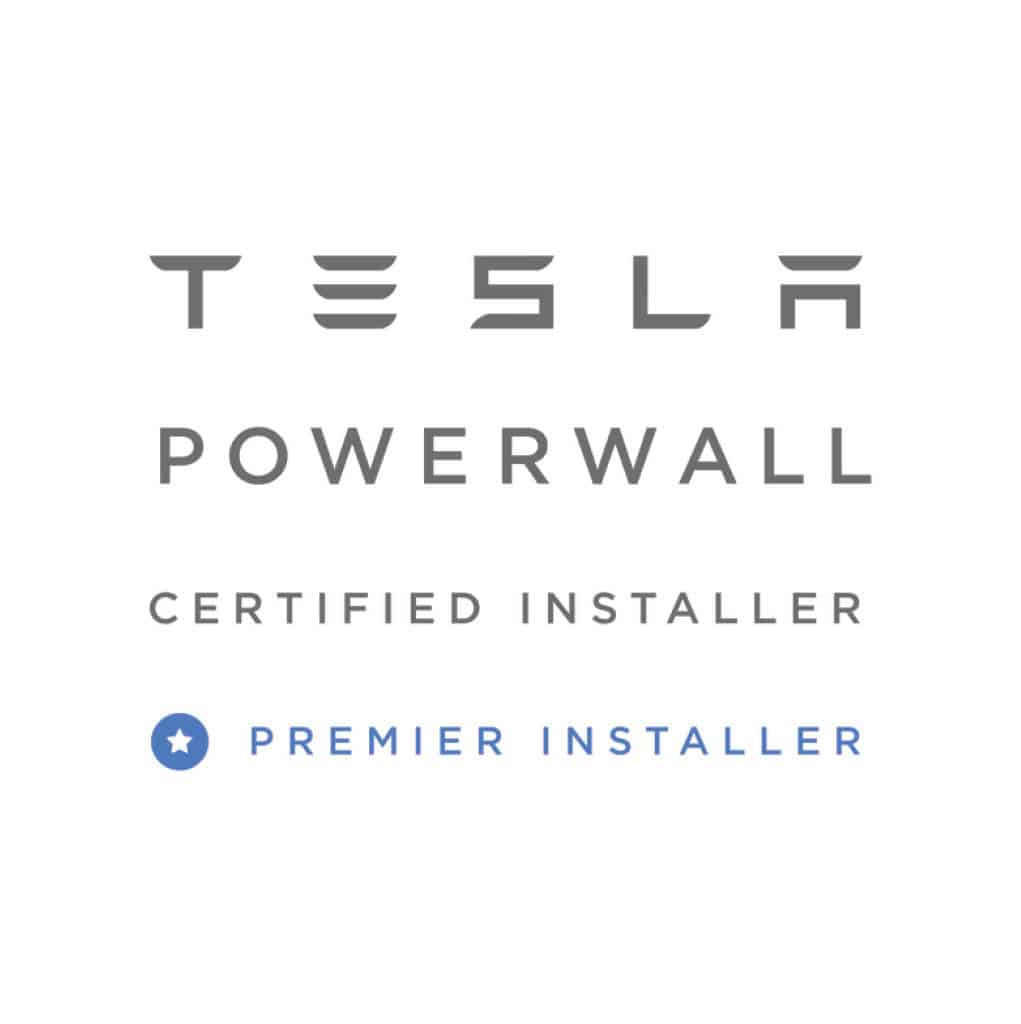When it comes to making sure your home has power during outages, gone are the days of relying on fuel-powered generators. Today’s homeowners have more options than ever, including battery backup systems that promise cleaner, quieter operation. Understanding the differences between these technologies is vital for making an informed decision that aligns with your energy needs, budget, and lifestyle.
We’ve all experienced it—you’re going about your day when suddenly the lights go out, leaving you in the dark. These moments highlight our dependence on reliable electricity, especially as remote work and smart home technologies become more common in our lives.
This guide will help you understand the benefits and limitations of traditional generators and modern battery backup systems, helping you to choose the right solution for your home’s energy security needs.
Understanding How Generators Work
Standby generators are designed to automatically activate during power outages, providing a seamless transition to backup power for your home. These systems connect directly to your electrical panel and begin generating electricity as soon as they detect an interruption in your main power supply.
Operation and Fuel Sources
Modern generators operate on various fuel sources including natural gas, liquid propane, or diesel. Many models feature “dual fuel” capability, allowing them to run on either natural gas or propane depending on availability and your needs.
Natural gas and propane generators offer convenience since they can usually connect directly to your home’s existing gas line or propane tank. This eliminates the need for manual refueling and creates uninterrupted operation even during extended power outages.
Diesel generators, while highly efficient, require regular refueling to maintain operation. This makes fuel management an important consideration, especially in areas prone to prolonged outages or where fuel delivery might be disrupted by severe weather events.
Maintenance Requirements and Costs
One of the main drawbacks of generators is their maintenance. Unlike battery systems, generators have many moving parts and require regular maintenance to ensure reliable operation when you need them most.
Typical generator maintenance includes:
- Monthly self-tests (usually automated)
- Oil changes every 50-200 running hours (or annually at minimum)
- Air filter replacements 2-4 times per year
- Spark plug replacements annually
- Coolant replacement every 2 years
- Professional inspection and service annually
This maintenance isn’t just recommended—it’s required to maintain your warranty. According to industry data, annual maintenance costs average $200-600 per year depending on generator size and type. Skipping this maintenance doesn’t just risk a warranty void; it increases the likelihood of generator failure when you need it most.
Many homeowners choose to purchase service contracts from their generator installer or manufacturer, which can range from $150-400 annually. While this is an additional cost beyond the initial purchase, it ensures your generator remains ready for action during critical moments.

Home Battery Backup Systems
Battery backup systems function as energy storage devices, capturing electricity either from your home’s solar setup or directly from the grid. Unlike generators, they provide power without combustion, eliminating noise and emissions while offering a more environmentally friendly alternative.
How Battery Backups Work
Home battery systems like the Tesla Powerwall 3 or Enphase IQ Battery, store electrical energy and release it when needed. During normal operation, these batteries charge using grid power or excess energy from connected solar panels. When the power goes out, an automatic transfer switch activates, allowing the battery to power essential circuits in your home.
For homeowners with solar panels, batteries provide an additional advantage by storing surplus energy generated during daylight hours. This stored energy can then be used at night or during cloudy periods, maximizing your self-reliance on renewable energy and potentially eliminating your dependence on the grid entirely.
Cost Savings Potential
Battery backup systems can offer long-term savings, especially if your utility company implements time-of-use billing. This rate structure charges higher prices during peak demand hours (typically evenings) and lower rates during off-peak times. With a battery system, you can:
- Charge your batteries during low-rate periods
- Power your home using stored energy during high-rate periods
- Sell excess energy back to the grid through net metering programs
Some homeowners participate in virtual power plants, allowing utility companies to access a portion of their stored energy during peak demand. While this means surrendering some control over your energy reserves, it can provide financial benefits through payments or credits.
Battery Backup Systems vs. Generator
When evaluating backup power options for your home, several factors should guide your decision: price, installation complexity, maintenance requirements, and expected lifespan. Understanding these differences will help you choose the solution that best aligns with your needs.
Price Comparison
Battery backup systems generally require a higher initial investment, ranging from $10,000 to $20,000 for an average home. This higher upfront cost is offset by minimal ongoing operational expenses and savings through reduced electric bills. These systems also qualify for financial incentives, including federal tax credits and various state programs that can reduce the effective cost.
Generators, by comparison, offer a lower entry point with initial costs between $7,000 and $15,000 for installation. The trade-off comes in the form of ongoing expenses—fuel costs that fluctuate with usage patterns and energy prices, plus annual maintenance that runs $200-600. Generators also tend to qualify for fewer tax incentives than their battery counterparts.
When calculating total cost of ownership, many homeowners find that battery systems prove more economical over time, especially when factoring in operational savings and available incentives.
Installation Requirements
The installation process differs between these systems. Battery backup systems offer flexibility in placement—they can be mounted on walls or positioned on floors, adapting to your available space. Professional installation usually involves electrical work and possibly a transfer switch, but usually completes within a single day. These systems require no fuel connections and pose no concerns about noise or emissions that might affect placement decisions.
Generator installation tends to be more complex and invasive. The process typically begins with pouring a concrete pad to support the unit, followed by professional connection to a fuel source like a gas line or propane tank. A transfer switch has to be installed to integrate with your home’s electrical system. Placement requires careful consideration of noise levels and emissions. The entire installation typically spans 1-2 days.
For either option, installation costs generally fall between $1,500 and $4,000, varying based on complexity and local labor rates.
Maintenance Comparison
One of the biggest differences between these systems lies in their maintenance requirements. Battery backup systems function essentially as maintenance-free solutions. With no moving parts to wear out, maintenance primarily consists of occasional software updates that often occur automatically. There’s no fuel to monitor or replace, and operation remains completely silent without emissions.
Generators demand regular attention to function properly when needed. They require adherence to a strict maintenance schedule to maintain warranty coverage, including regular oil and filter changes. The fuel supply must be constantly monitored and maintained. During operation, generators produce noise (typically 60-70 decibels) and generate exhaust that requires proper ventilation.
This maintenance disparity represents a consideration for homeowners. Industry data reveals that approximately 20% of generator failures during actual emergencies stem directly from inadequate maintenance. Even more concerning, up to 40% of generator warranties are voided due to improper or insufficient maintenance procedures. For homeowners seeking reliability without ongoing time commitment, battery systems offer a clear advantage.
Runtime and Power Capacity
When it comes to performance during outages, both systems have distinct characteristics. Battery backup systems provide 10-14 kWh of energy storage per battery module. Their runtime depends on your power consumption, generally lasting 4-8 hours for essential household loads. For extended power, multiple batteries can be combined, and performance improves when integrated with solar panels. Throughout operation, these systems remain silent.
Generators excel in extended outage scenarios, capable of running for days or weeks with adequate fuel supply. They deliver 8-22 kW of continuous power with no runtime limitations beyond fuel availability. Output remains consistent regardless of duration, though they may require periodic cooling during extended use.
For areas prone to prolonged power interruptions, generators currently offer an advantage unless the battery system includes a strong solar array capable of regular recharging.
Lifespan and Warranty Considerations
Battery systems come with 10-year warranties that include end-of-warranty capacity guarantees, usually promising 70-80% of original capacity. These systems experience gradual degradation over time, similar to smartphone batteries. Some manufacturers offer throughput warranties that guarantee a specific number of cycles. With limited moving parts, these systems experience fewer mechanical failures.
Generator warranties generally span 5-10 years but often require documented professional maintenance to remain valid. With proper care, generators have an expected lifespan of approximately 3,000 operating hours. For average use (100-150 hours annually), this translates to 20+ years of service. However, their more complex mechanical systems introduce additional potential failure points.
While battery systems generally offer more warranty protection, generators may provide longer overall service life with proper maintenance.
Environmental Impact Considerations
The environmental footprint of backup power solutions has become more important to homeowners. Battery backup systems produce zero direct emissions during operation and operate silently without noise pollution. They offer seamless integration with renewable energy sources and have battery recycling programs available at end-of-life, though their manufacturing process does have environmental impacts.
Generators, by contrast, produce carbon dioxide and other emissions during operation and create noticeable noise pollution. They rely primarily on fossil fuels and require regular oil disposal or recycling as part of maintenance. Their manufacturing impact is comparable to other mechanical systems.
For environmentally conscious homeowners, battery systems clearly offer many advantages, especially when paired with solar energy.
Which Home Energy Backup Is Right For You?
Your ideal backup power solution depends on your specific circumstances and priorities. A battery backup system makes sense if you value quiet, maintenance-free operation, prioritize environmental impact, already have or plan to install solar panels, experience brief power outages, and are interested in ongoing energy savings and incentives.
Consider a generator if your area experiences frequent, extended power outages, you need to power your entire home without limitations, you have reliable access to natural gas or propane, you’re comfortable with regular maintenance, and initial cost represents your primary concern.
Some homeowners maximize resilience by adopting hybrid solutions that incorporate both technologies—using a battery system for immediate, clean power during shorter outages while maintaining a generator for extended emergencies.
The Convenience Factor
From a convenience standpoint, battery backup systems offer advantages. With a properly installed battery system, the transition during a power outage is seamless—the lights stay on, your refrigerator continues running, and you might not even notice the outage occurred. This contrasts with even the best automatic generators, which have a brief startup period of 10-30 seconds.
Battery systems operate silently, without producing fumes or requiring fuel management. This “set-and-forget” convenience is appealing to many homeowners who want peace of mind without the ongoing maintenance commitments of traditional generators.

The Future of Home Backup Power
As technology evolves, we’re seeing rapid advancements in the home energy storage market. Battery costs continue to decline while energy density improves, making these systems increasingly accessible. Similarly, generators are becoming more efficient and environmentally friendly, with some manufacturers exploring renewable fuel options.
The integration of smart home technology is transforming how we manage backup power. Advanced monitoring systems now allow homeowners to track energy usage, optimize battery charging cycles, and even prioritize which appliances receive power during outages.
Contact 8MSolar for Expert Guidance
At 8MSolar, we understand that selecting the right backup power solution involves weighing numerous factors. Our team of North Carolina solar professionals is ready to help you navigate these options and find the perfect system for your needs.
Whether you’re considering a battery backup system integrated with solar panels or exploring traditional generator options, we provide personalized recommendations based on your energy usage, budget, and reliability requirements. Our expertise ensures you’ll never be left in the dark again.
Contact 8MSolar today for a free consultation and take the first step toward complete energy security for your home.









